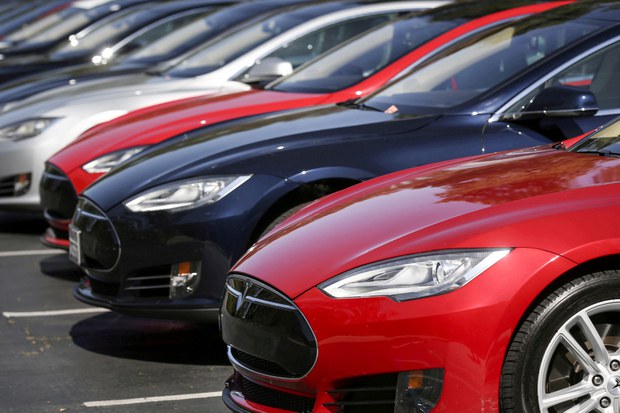Taiwan’s military boycott’s Tesla cars after founder’s comments
Share

A row of Tesla Model S sedans seen outside the company’s headquarters in Palo Alto, California, Apr. 30, 2015.
The Taiwanese military will stop buying Tesla cars after its boss Elon Musk suggested that China should “figure out a special administrative zone for Taiwan.” However, the firm’s China sales hit a record high in September.
During an interview with Britain’s Financial Times last weekend Musk, the world’s richest man, said he believed a “conflict over Taiwan is inevitable.”
He said China should figure out a “reasonably palatable” system for Taiwan, “an arrangement that’s more lenient than Hong Kong.”
Musk’s suggestion drew angry reactions from Taiwan’s political circles and the island’s minister of defense on Wednesday announced that the Taiwanese military will not buy any more Teslas.
Minister Chiu Kuo-cheng told a legislative session that the army “will definitely not make any more purchases” from the U.S. electric car maker.
Currently Taiwan’s military has seven Tesla Model 3s and uses them for administrative purposes.
Military officials said all the cars’ cameras are turned off for security reasons. Each Tesla car is equipped with eight cameras that can relay footage back to the company.
After Musk’s interview some Taiwanese politicians, including Chao Tien-lin, a legislator from the ruling Democratic Progressive Party, called for a boycott of Tesla’s products “indefinitely” unless the businessman changed his tone about Taiwan.
Tesla in mainland China
Albeit relatively modest compared to China’s mainland, Taiwan’s market for Tesla electric cars saw healthy growth this year, according to industry’s sources.
Tesla sold 1,774 cars in Taiwan in August, a 303.2 percent year-on-year increase, said the island’s Overseas Community Affairs Council.
Meanwhile in China, Elon Musk’s company reported sales of 83,000 cars in September, up 8 per cent from August.
The sector of new energy vehicles, including electric cars and plug-in hybrids, is doing very well in China, according to the China Passenger Car Association.
The company is facing growing competition from local electric vehicle (EV) producers. Its Chinese rival BYD sold 201,000 EVs in September, more than double Tesla’s sales.
It remains unclear how Musk’s comments, which are seen by analysts as stoking geopolitical tensions, would affect Tesla’s business in China even if the billionaire’s Taiwan suggestion was praised by the Chinese Ambassador to the U.S. Qin Gang as “the best approach to realizing national reunification.”
In his interview with the FT, Musk also said that Beijing doesn’t want him to sell his Starlink satellite internet service in China but did not reveal if he’d agreed to the request.







